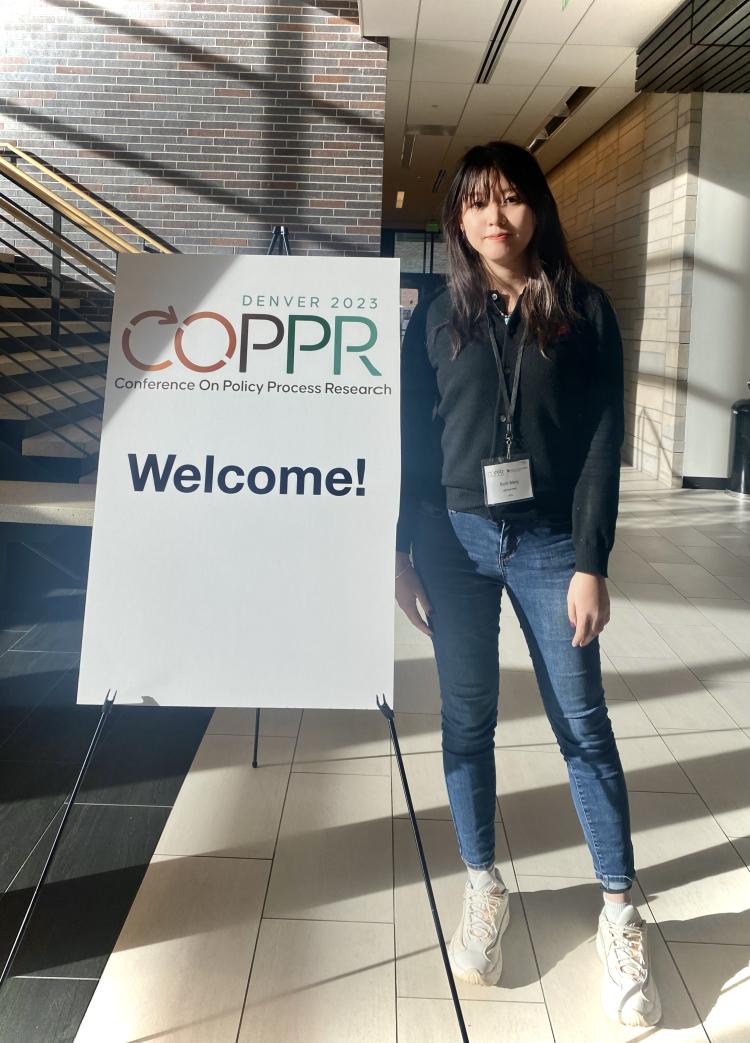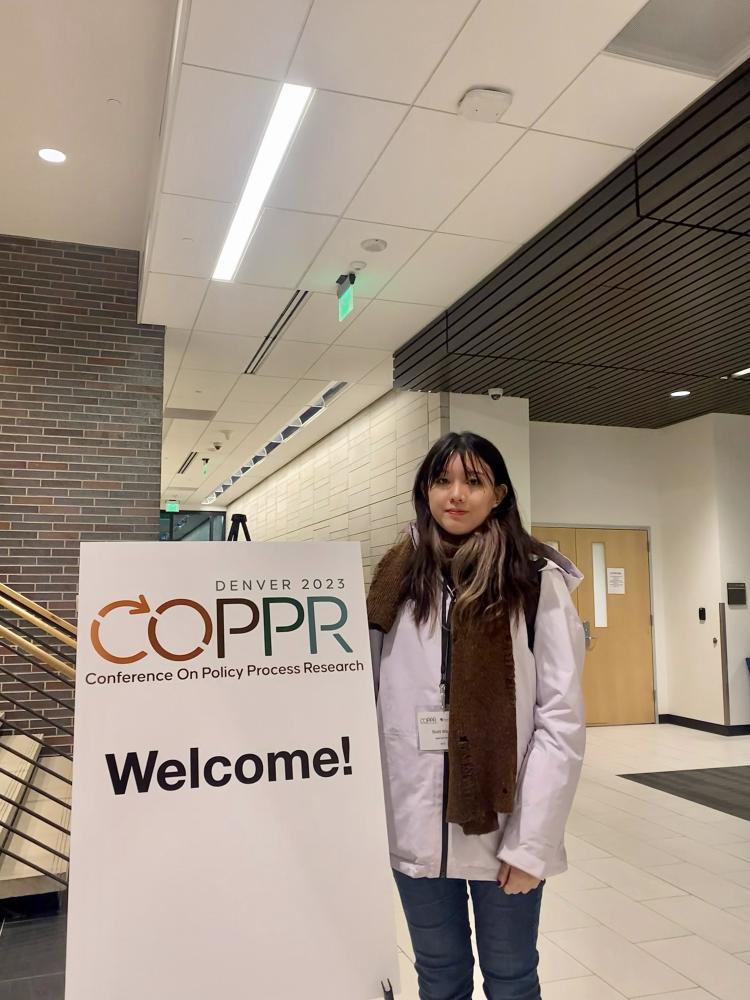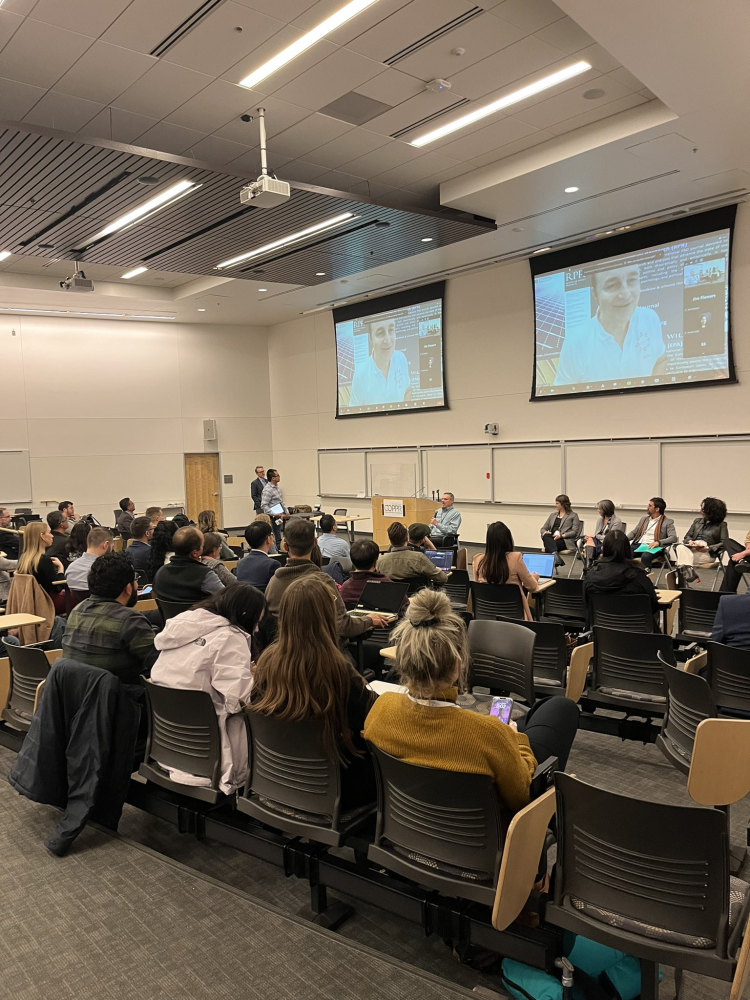OCS Conference Funding Submission
Event Photo:

COPPR Conference

COPPR Conference

Taking Notes at the roundtable with featuring editors from Policy and Politics, Policy Studies Journal, Review of Policy Research, Perspectives on Public Management and Governance(photo credit: twitter @PolProcessRsch)
Name: Siqi Wang
Degree Program: MPA IN PUBLIC & NONPROFIT MANAGEMENT & POLICY
Specialization: PNP-Public Policy Analysis
Conference Host Organization/Institution: University of Colorado Denver School of Public Affairs
Conference/Competition Name: Conference on Policy Process Research (COPPR) 2023: Advancing Policy Process, Theories, and Methods
Conference Term: January Conference Start Date: 2023-01-12 Conference End Date: 2023-01-14
What were your takeaways from this conference/case competition?
While we can analyze the causal effect of a specific program with a “well-designed” experiment to generate policy interpretations, policy issues are often interconnected and affected by different constraints in practice. Thus, insights into the policy process are essential to discovering more holistic angles to design, analyze and evaluate policy issues. Also, the evolution of collaborative governance about how public, nonprofit, and private sectors are jointly involved in policy issues casts light on how to enhance effectiveness and the need to promote inclusiveness and equality. In addition, policy narrative strategies can influence problem definition as well as policy solutions.
How will your participation in this conference/case competition support your professional development?
Academically, the conference triggered my interest in policy process issues, especially in Natural Resources, Energy, and Climate Change fields. It inspires me to think about why some energy choices became defined as a private issue, why some post-disaster learning in local government is not necessarily a cognitive in-depth learning process, and what’s children’s role in risk mitigation and climate adaptation. Professionally, I exchanged ideas and made connections with professors and policy students, which I greatly value. I am invited to join the COPPR graduate working group to get feedback on work progress and keep in touch throughout the year.
What are some next steps or action items this conference/case competition inspired?
From the roundtable conversation led by featuring editors, I learned about some requirements for scholars to get their research papers published. This inspires me to read rigorous policy journals as one next step to learn about new policy research frontiers, changes, and academic writing styles. I also acknowledged the power of research communications from the conference, which inspires me to sharpen my communication skills. Finally, while learning about policy process theories is helpful, I found my passion and specialty lay more in policy analysis and evaluations, so another next step is to explore opportunities like attending APPAM and AEA conferences.
What are some tips or best practices that you would like to share with other Wagner students who attend a conference/case competition?
First, I suggest students who hesitate to attend the conference spend time researching the conference’s theme, host institution, partnership organizations, and speakers to help make the decision. Students can also reach out to previous participants to ask for advice. Second, in a conference, many presentations may take place simultaneously. Students may research the conference schedule and speaker's research field in advance to leverage time. Third, students have many opportunities during and beyond a presentation to exchange ideas or connect with professors, scholars, and peers, but the time is limited. Therefore, an elevator pitch and communication skills are valuable.
Wagner Areas of Impact: Education, Government, Health, Inequality, Race, and Poverty, International Development, Nonprofits